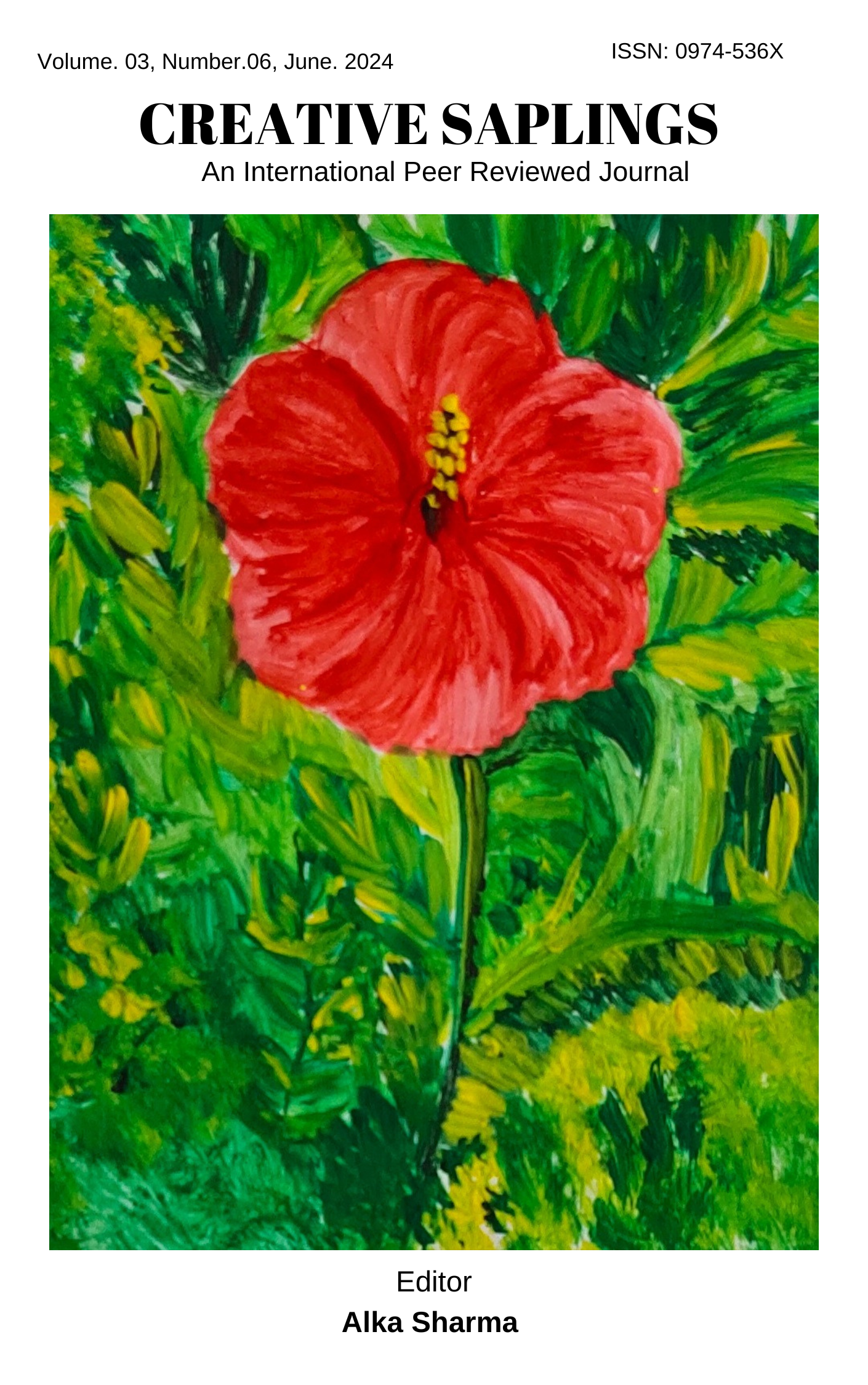Memoirs of Perseverance: Episodic Memory in Elie Wiesel's Night
DOI:
https://doi.org/10.56062/gtrs.2024.3.6.612Keywords:
Memory, trauma, struggle for identity, history of memory, autobiography memory.Abstract
Episodic memory is the neurocognitive system that allows humans to recall past experiences. The individual memories of these experiences are referred to as short-term objectives, which describe a unique relationship with time. The concept of episodic memory is not a reference to specific tasks but a hypothetical system operating beyond preserved information and mental experiences. It does not consist of individual bits of information but involves multiple components of a single event bound together. Elie Wiesel's Night recounts the personal experience of the author in a concentration camp during the period of the Holocaust. The paper attempts to analyze how Tulving's episodic memory theory has been used in the characters of Elie Wiesel's Night. Furthermore, it will explore how Wiesel used the tool of episodic memory objectives in his novel to show the true faces of society and further investigate how the novel portrays personal experiences and contextual details about autonoetic consciousness, mental time travel, subjective nature, temporal order, and neurological basis.
Downloads
References
Tulving, Endel. "How many memory systems are there?." American psychologist 40.4 (1985): 385.
Arnold, Kathleen M., Kathleen B. McDermott, and Karl K. Szpunar. "Individual differences in time perspective predict autonoetic experience." Consciousness and cognition 20.3 (2011): 712-719.
D’Argembeau, Arnaud, and Martial Van der Linden. "Phenomenal characteristics associated with projecting oneself back into the past and forward into the future: Influence of valence and temporal distance." Consciousness and cognition 13.4 (2004): 844-858.
Tulving, Endel. "Memory and consciousness." Canadian Psychology/Psychologie canadienne 26.1 (1985): 1.
Tulving, Endel. "Episodic and semantic memory." Organization of memory 1.381-403 (1972): 1.
McGeoch, John A. "Forgetting and the law of disuse." Psychological review 39.4 (1932): 352.
Schuster, Ekkehard, Elie Wiesel, and Reinhold Boschert-Kimmig. Hope against hope: Johann Baptist Metz and Elie Wiesel speak out on the Holocaust. Paulist Press, 1999.
Tulving, Endel. "Elements of episodic memory." (1983).
Tulving, Endel. "Episodic and semantic memory." Organization of memory 1.381-403 (1972): 1.
Roediger, Henry L., III, and James V. Wertsch. “Creating a New Discipline of Memory Studies.” Memory Studies, vol. 1, no. 1, 2008, pp. 9–22, doi:10.1177/1750698007083884.
Parkin, Alan. Memory: Phenomena, experiment and theory (1st ed) Routledge, 1993.
Bergson, Henri. Matter and Memory, 1896. Edited by Trans Nancy Margaret Paul and W. Scott Palmer. London, 1911.
Radstone, Susannah. “Memory Studies: For and Against.” Memory Studies, vol. 1, no. 1, 2008, pp. 31–39, doi:10.1177/1750698007083886.
Conway, Martin A. “Sensory–Perceptual Episodic Memory and Its Context: Autobiographical Memory.” Philosophical Transactions of the Royal Society of London. Series B, Biological Sciences, vol. 356, no. 1413, 2001, pp. 1375–1384, doi:10.1098/rstb.2001.0940.
Tulving, Endel. "Are there 256 different kinds of memory?." The foundations of remembering. Psychology Press, 2011. 39-52.
Leed, Eric. "Fateful memories: industrialized war and traumatic neuroses." Journal of contemporary history 35.1 (2000): 85-100.
Kelley, Troy Dale, Robert Thomson, and Jonathan R. Milton. "Standard model of mind: Episodic Memory." Procedia computer science 145 (2018): 717-723.
Pastor, Alvaro, and Pierre Bourdin-Kreitz. "Comparing episodic memory outcomes from walking augmented reality and stationary virtual reality encoding experiences." Scientific Reports 14.1 (2024): 1-23.
Duken, Sascha B., et al. "Bayesian evaluation of diverging theories of episodic and affective memory distortions in dysphoria." Nature Communications 15.1 (2024): 1320.
Schwarz, Claudia, et al. "Reserve, resilience and maintenance of episodic memory and other cognitive functions in aging." Neurobiology of Aging (2024).
Moscovitch, Morris, et al. "Episodic memory and beyond: the hippocampus and neocortex in transformation." Annual review of psychology 67 (2016): 105-134.
Allen, Timothy A., and Norbert J. Fortin. "The evolution of episodic memory." Proceedings of the National Academy of Sciences 110.supplement_2 (2013): 10379-10386.
Martin-Ordas, Gema, and Cristina M. Atance. "Adults' performance in an episodic-like memory task: The role of experience." Frontiers in Psychology 9 (2019): 419472.
Tulving, Endel. "Episodic memory: From mind to brain." Annual review of psychology 53.1 (2002): 1-25.
Smith, S. Adam. "Virtual reality in episodic memory research: A review." Psychonomic bulletin & review 26 (2019): 1213-1237.
Rosenbaum, R. Shayna, Julia G. Halilova, and Thanujeni Pathman. "Semantic memory before episodic memory: How memory research can inform knowledge and belief representations." Behavioral and Brain Sciences 44 (2021).
Fayyaz, Zahra, et al. "A model of semantic completion in generative episodic memory." Neural Computation 34.9 (2022): 1841-1870.
Okuda, Jiro, et al. "Thinking of the future and past: The roles of the frontal pole and the medial temporal lobes." Neuroimage 19.4 (2003): 1369-1380.
James, William. The principles of psychology. Vol. 1. Cosimo, Inc., 2007.
Schacter, Daniel L., Kenneth A. Norman, and Wilma Koutstaal. "The cognitive neuroscience of constructive memory." False-memory creation in children and adults (2000): 136-175.
Nelson, Thomas O. "Metamemory: A theoretical framework and new findings." Psychology of learning and motivation. Vol. 26. Academic Press, 1990. 125-173.
Dere, Ekrem, et al. "Animal episodic memory." Handbook of Behavioral Neuroscience 18 (2008): 155-184.
Wiesel, Elie. The night trilogy: Night, dawn, day. Macmillan, 2008.
Tulving, Endel. "Episodic memory: From mind to brain." Annual review of psychology 53.1 (2002): 1-25.
El Haj, Mohamad, et al. "Autobiographical memory decline in Alzheimer’s disease, a theoretical and clinical overview." Ageing research reviews 23 (2015): 183-192.
Irish, M., et al. "Profiles of recent autobiographical memory retrieval in semantic dementia, behavioural-variant frontotemporal dementia, and Alzheimer's disease." Neuropsychologia 49.9 (2011): 2694-2702.
Piolino, Pascale, et al. "Autobiographical memory, the sense of recollection and executive functions after severe traumatic brain injury." Cortex 43.2 (2007): 176-195.
Dere, Ekrem, et al. "Animal episodic memory." Handbook of Behavioral Neuroscience 18 (2008): 155-184.
Díaz-Trujillo, Arnulfo, et al. "Enhanced inhibitory avoidance learning prevents the long-term memory-impairing effects of cycloheximide, a protein synthesis inhibitor." Neurobiology of learning and memory 91.3 (2009): 310-314.
Suzuki, Maki, et al. "Neural basis of temporal context memory: a functional MRI study." Neuroimage 17.4 (2002): 1790-1796.
Downloads
Published
Issue
Section
License
Copyright (c) 2024 Mahisha Babu J, B. Anita Virgin

This work is licensed under a Creative Commons Attribution-NonCommercial 4.0 International License.





